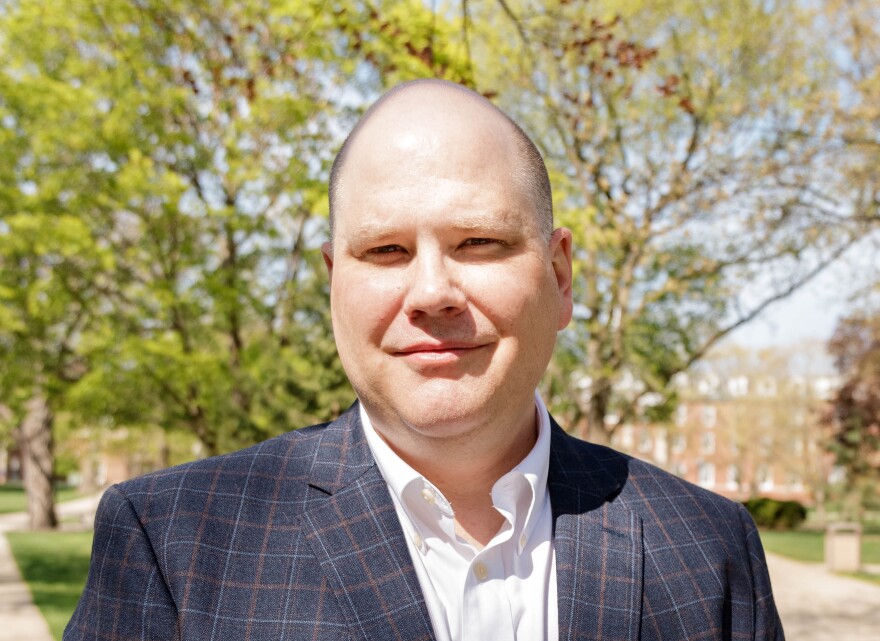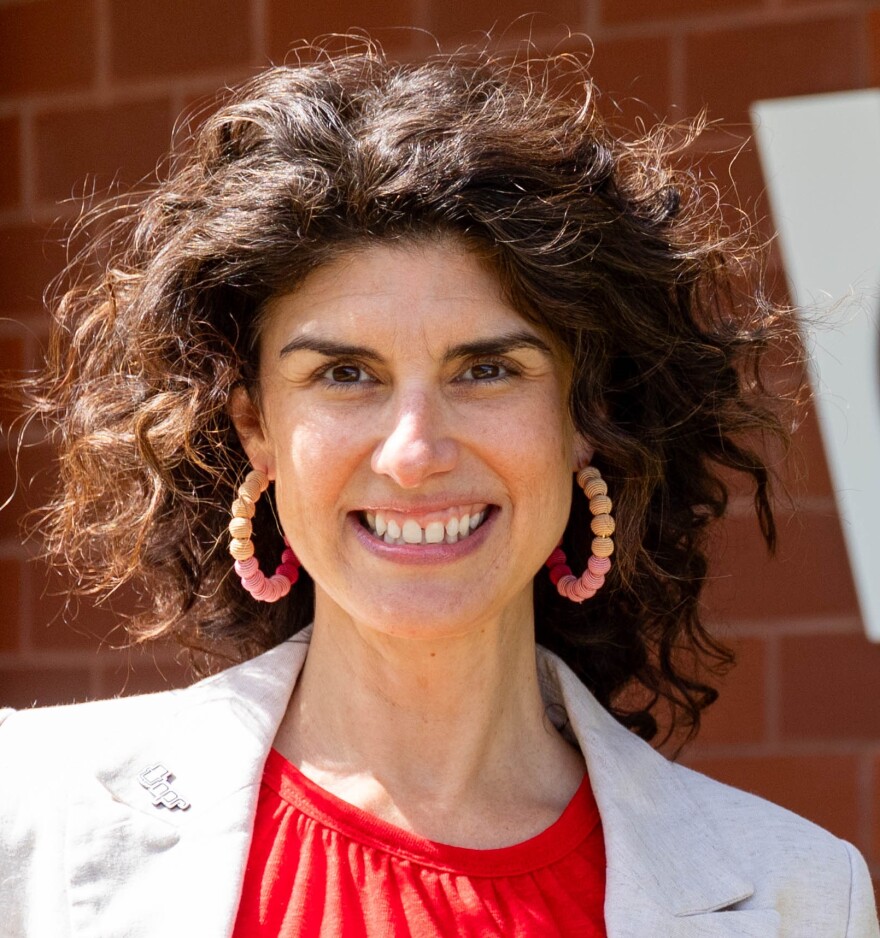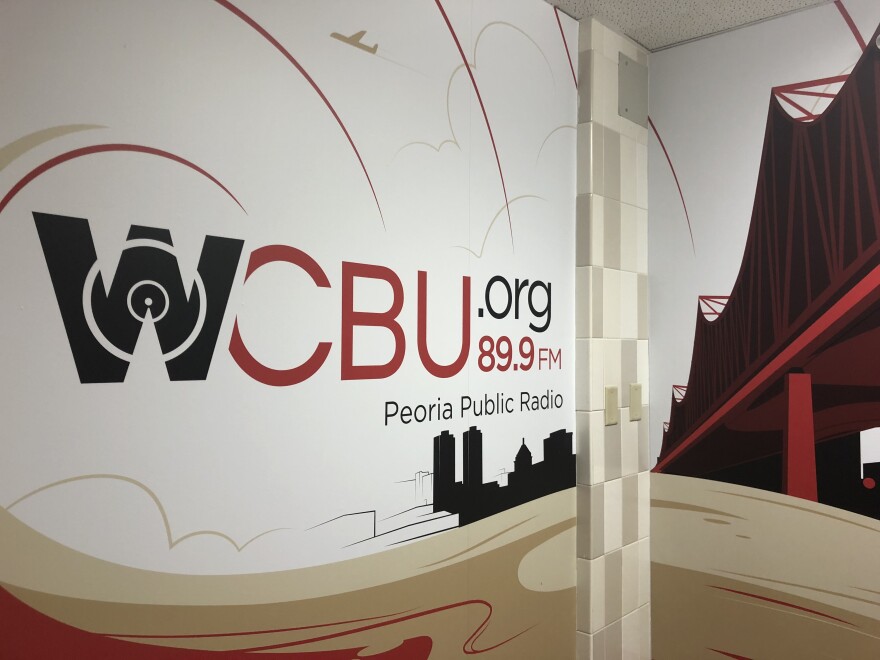NPR member stations across the country are facing a period of unknowns after an executive order from President Donald Trump called for an end to NPR and PBS funding through the Corporation for Public Broadcasting [CPB].
While stations like WCBU Peoria Public Radio wait to see what sort of legal challenges may be brought against the order by NPR and other parties, leadership is forging ahead while planning for the possibility of operation without federal funding.
“It’s business as usual, as far as where we are. I mean, obviously it’s concerning, but it’s not surprising,” said WCBU Executive Director R.C. McBride, who is also a member of the NPR board.
“I think we’ve been seeing the increase in funding attacks since January, and we were prepared for this,” said Melissa Libert, WCBU’s assistant general manager and development director. “Now it’s just a matter of, how does the CPB respond and what are our next steps?”
At the moment, Libert says it is too soon to say definitively how an end to federal funding would impact local operations. She says the CPB funds account for about 18-20% of WCBU’s total budget, depending on the year.
In the current fiscal year, WCBU received about $125,000 in federal funding.
“That’s just the direct number. The other thing that we always have to keep in mind when we’re doing these calculations are, what are some of the indirect costs and what are the ripple effects going to be if CPB funding disappears?” said Libert.

One of those potential ripple effects is dropped national shows on local NPR stations.
The model works like this: NPR is an independent nonprofit, member stations like WCBU pay membership fees and receive national programming like “All Things Considered,” “Here and Now,” and “Wait! Wait! Don’t Tell Me!” Those membership fees come, at least in part, from CPB funding distributed directly to the member stations.
NPR also provides online infrastructure, like the content management services used to post to WCBU.org.
“We all pay into that,” said McBride. “If we had to go out independently and buy something off the shelf for ourselves, it would be a lot more expensive.”
Libert says dropped national shows at local stations could result in NPR raising the prices for programming, which could in turn result in more stations needing to drop programming – and the cycle continues.
“That’s one of the great things about the NPR network that sets it apart is, again, you’re able to get national and international news coverage for free in your community,” said Libert.
The loss of federal funding could also have an impact on collaboration at a regional level, as smaller member stations with budgets more reliant on federal funding fold and aren’t able to participate in sharing of regional and statehouse stories.
Libert said 80% of WCBU’s budget comes from listeners, website readers and underwriters, which will help sustain the station. However, she says it’s not realistic to expect the entire total of federal funding to be covered by an increase in community funding.
“I think one of the other ways we’re hoping to maybe make up some federal funding losses would be at the state level. We do receive state funding, it’s a very small amount. Every station in Illinois shares about $1 million right now,” said Libert.
State Sens. Dave Koehler [D-Peoria] and Paul Faraci [D-Champaign] have proposed a measure to issue $12 million in grants to the state’s public radio and television stations through the Illinois Arts Council. That measure currently sits in the Appropriations Committee.
Libert acknowledges it is a tight budget year for the state, but says station leaders are optimistic some additional increase in state funding will come through.
The Trump administration, as part of the executive order, claimed NPR and PBS have an ideological bias. That argument is being used as grounds to end any use of taxpayer dollars on the services.
The leaders of NPR and PBS testified at a House oversight committee earlier this year, addressing allegations of ideological bias in public broadcasting.

“To me, now we’re straying into a First Amendment issue, right?” said McBride. “The Public Broadcasting Act pretty clearly states that no officer of the United States should have undue influence on how the CPB grants its money and what it’s used for. That’s why the act set up the Corporation for Public Broadcasting in the first place, so that there was some independence.”
Though it is mostly “business as usual,” McBride says there are some decisions being made to save money in preparation for an uncertain outcome.
“It’s no secret that WCBU has unfilled positions at this point, and most of them are full-time journalism positions,” said McBride. “We would love to go hire some full-time journalists, but given the lack of clarity, we simply are not comfortable doing that at this point. So we wait.”
The station is also exploring other possible grant opportunities. Libert points out WCBU has utilized outside grants in the past, like the Google News Initiative grant, which expands coverage in Pekin, Washington and other communities in the Greater Peoria area.
“That’s the grant support we’re looking for,” she said. “We’re looking to do more, not to restrict or be very tailored in our news and programming to suit someone else’s interest. The person that’s best qualified to make decisions about how to use grant funds is the person at our station.”
Libert said the station would not accept any grants that conditionally require news or programming changes.
Libert and McBride also serve the in the same roles for WGLT, Bloomington-Normal's Public Media. WCBU is operated through a joint agreement of Bradley University and Illinois State University. WCBU is editorially independent from WGLT.


